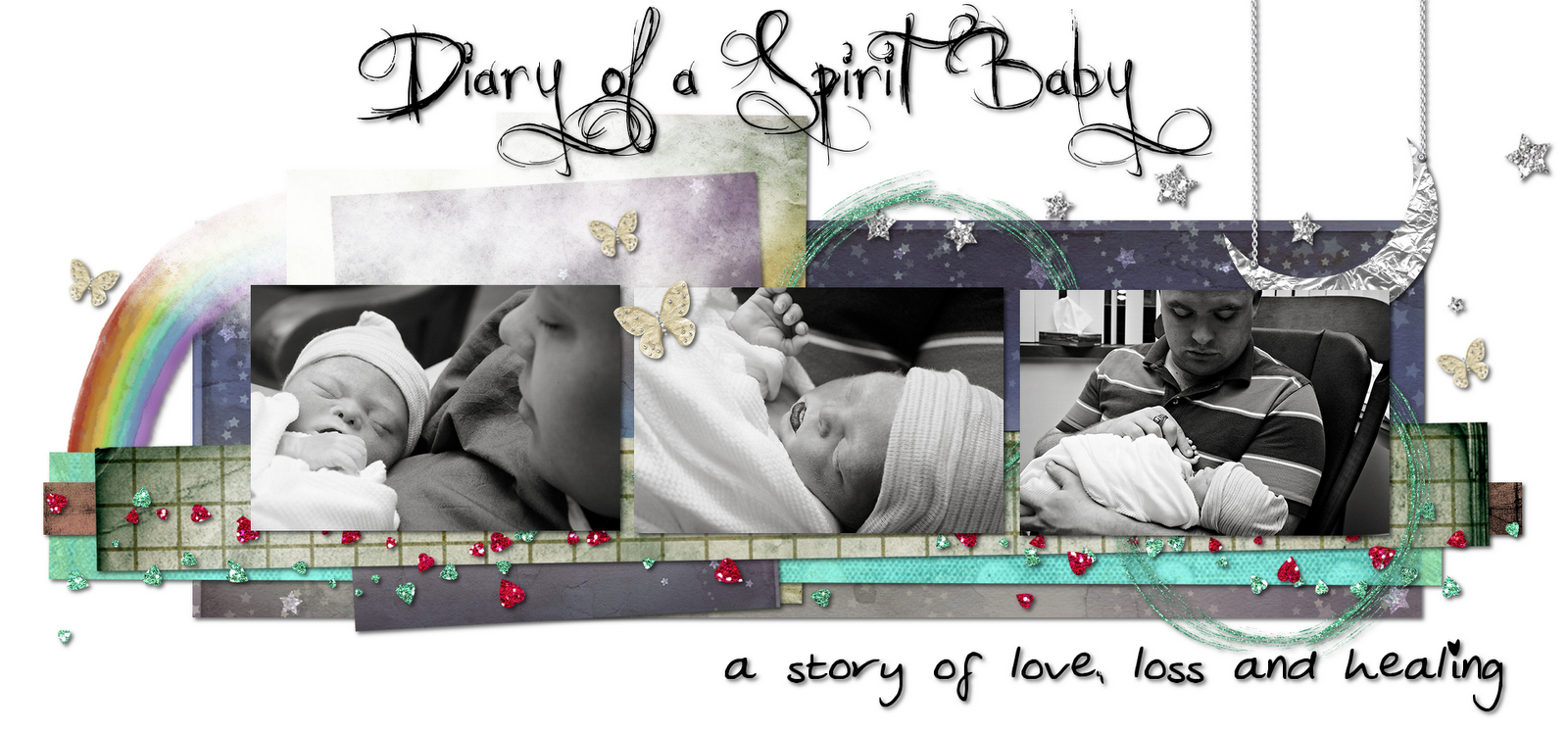Since November 14th, 2008, I've been a parent of a dead child. That statement in itself is profoundly unfamiliar to me, as I wish it is to everyone else. But why don't I feel the stereotypical emotions associated with such a loss? Grief, sadness, anger? Even with my best answer to this, I still feel as if it isn't enough, as if I should feel more.
I am a logical person. For each action, there is a reaction and each question there is an answer. In understanding the events surrounding his death, I really had to search inside myself to find the answer that best suited my logical thinking as well my personal reasoning.
First was his death. Duncan died at 35 weeks due to birth defects associated with Down's Syndrome. I do not believe that I was being punished by some guy in the sky because he got pissed off when I deconverted from Christianity. What I did find is that when I examined the human process and human nature, I realized one glaring comparison. Man's creations are always flawed, whether it is a pencil, a computer, or commuter jet. All aspects of man's life is controlled by a system of checks and balances to provide procedures for when things go wrong. For example, in the production life of a computer, there are quality control tests that are performed before the product is shipped to the consumer. If it passes, then it is good to go, but if not, then it is pulled from shipping. That being said, every once in a while you will read consumer reports of defective computers being purchased. That is where I pull my comparison from. When Duncan was growing inside Brittany's womb, he was fine until he basically got to the quality control checks, the point where his organs needed to work on their own. Being that his heart and lungs, among other organs, could not support life, he died. He did not make it to the the consumer market. And there are some children that do. Children born with mental or physical handicaps that run the gamut of living normal lives or dying at an early age. It all goes back to the human process. We are all made 99% the same. We get the same parts the same way. However, that last 1% is what makes us unique, human. The infinite combinations of biological chemicals swirling around in our body contribute to the best and the worst of humanity. It is tragic that the human process is extremely merciless when it comes to the growth of a fetus. Whether we like it or not, that is our process. The human process. Fix what is repairable, discard what is not. My realization of this comparison is what has drawn me to an understanding of my emotions, or lack thereof depending on the point of view.
First let me say that losing Duncan was the most traumatic event I have experienced in my 25 years on this planet and I wish upon no one to go through that. Now when I began to notice that my emotions following his death didn't portray the typical grieving process, I had to determine if I was feeling anything at all and why. My first inquiry was to the bond and I found that there wasn't a physical bond in place, due to the fact that I hadn't actually seen him until he was stillborn. Mothers have a distinct advantage when it comes to the birthing process in that they have had 9 months to bond with their little nugget of vomit and projectile poop. The kicking, hiccupping, and heartbeat will always be a second hand experience to the father and therefore must build his bond through the mother. Once the child is born, however, the father is then able to bond as the mother has. I believe that is why I was less visibly emotional after his death. I am heartbroken by his death, yet because I had no physical interaction while he was alive, I hadn't formed a fatherly bond with him. The bond I shared through Brittany was apparent that night and day in the hospital. The moment he came out, limp and small, I ultimately knew that he was gone and there would be no fatherly bond to be made. That is what affected me the most.
I found it relativley easy to move on though. I know that may be a harsh statement for some as it is for me, but it is the truth. With my logic mindedness, I recognized he had been a part of my life and will continue to be, but because a physical bond had not yet been established, the time I spent in grieving sufficed for me to move forward. It's really a judgement process in the amount of time spent in mourning. The two biggest factors that I think go into the grieving process is length of the relationship and personal mentality. There is no set timetable or stereotypical standard of grief. It's just what makes you feel right after you've honored your lost without diminishing the impact that they have had on your life.
When we lose something, we are not saddened by the loss, but rather the ceasing of possession. To really honor our loved ones when they have passed, we must honor them with our love while they are present.
-M. A. Hines
All about our Home Birth, Birth Story
5 years ago







1 comments:
The difference in the masculine and feminine response seems profound... I'm noticing that same difference between my reactions and my husband's, too...
Post a Comment